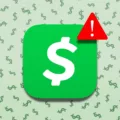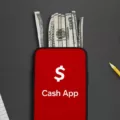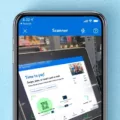The government plays a crucial role in ensuring the smooth functioning of our society. One of its responsibilities is to track financial transactions, including those made through popular payment apps like Cash App. In light of this, you may be wondering if the government keeps tabs on your Cash App activity. Let’s delve into this topic and explore the government’s involvement in tracking Cash App transactions.
First and foremost, it’s important to note that Cash App, like other payment apps, is subject to certain legal obligations. These obligations require Cash App to report certain transactions to the Internal Revenue Service (IRS) when they meet specific criteria. If you have a business account with Cash App and receive $600 or more in a year, those transactions must be reported on a Form 1099-K. Cash App is also required to share this information with the IRS.
So, what does this mean for you as a Cash App user? If you have a business account and receive a significant amount of money through Cash App, you can expect your transactions to be reported to the IRS. It’s essential to keep accurate records of your income and ensure you report it correctly on your tax returns. Failure to do so could result in penalties or legal consequences.
However, it’s worth mentioning that this reporting requirement only applies to business accounts and transactions exceeding $600. If you use Cash App for personal purposes or have transactions below this threshold, your activity may not be subject to reporting requirements. Nevertheless, it’s always a good idea to consult with a tax professional to ensure compliance with tax laws and regulations.
In addition to tax reporting, the government may also track Cash App transactions for other reasons. Law enforcement agencies, for instance, can obtain information about Cash App transactions through legal processes such as subpoenas, court orders, or search warrants. These orders may be issued in the context of investigations related to illegal activities, money laundering, or other criminal offenses.
It’s important to note that these tracking measures are in place to safeguard society and combat illicit activities. Cash App and other payment apps have a responsibility to cooperate with lawful requests from governmental authorities. This cooperation may involve freezing, withholding, or remitting funds in response to valid orders.
While the government does track Cash App transactions to some extent, it primarily focuses on business accounts and transactions exceeding $600. If you fall into this category, it’s crucial to ensure accurate reporting to the IRS. Moreover, law enforcement agencies can obtain information about Cash App transactions through legal processes in their efforts to combat illegal activities. Understanding these tracking measures can help you navigate your financial dealings responsibly and in compliance with the law.

Does Cash App Report to the Government?
Cash App is required to report certain transactions to the government. Specifically, if you have or had a business account with Cash App or other payment apps, and you receive $600 or more in a calendar year, the IRS (Internal Revenue Service) requires those transactions to be reported on a Form 1099-K. Cash App is obligated to report the same information to the IRS.
Here are a few key points to note regarding Cash App reporting:
1. Reporting Threshold: Cash App is only required to report transactions if they exceed $600 in a calendar year. Transactions below this threshold may not be reported.
2. Form 1099-K: The information reported by Cash App is documented on Form 1099-K. This form is provided to both the individual/business receiving the payments and the IRS. It includes details such as the total amount received and the number of transactions.
3. Business Accounts: The reporting requirement specifically applies to business accounts rather than personal accounts. If you use Cash App for personal transactions only, there may be no reporting obligation.
4. Other Payment Apps: It’s worth noting that the reporting requirement applies not only to Cash App but also to other payment apps or platforms. If you have business accounts with multiple payment apps and the combined transactions exceed $600, each app will report their respective portion to the IRS.
5. IRS Compliance: Failure to report income from payment apps like Cash App can result in penalties and legal consequences. It’s essential to ensure accurate reporting of all applicable transactions to remain compliant with IRS regulations.
Please be aware that tax laws and reporting requirements can vary, and it’s always advisable to consult with a tax professional or accountant for personalized advice regarding your specific situation.
Does Cash App Work with Government?
Cash App works with the government in certain instances. Here’s how Cash App interacts with the government:
1. Direct Deposits: Cash App allows users to set up direct deposits, which means you can receive various government payments directly into your Cash App account. This includes paychecks, tax returns, unemployment benefits, and government stimulus payouts. By linking your Cash App account to your employer or the government agency, you can receive these funds quickly and securely.
2. Stimulus Payments: During times of economic stimulus, such as the COVID-19 pandemic, the government may issue stimulus payments to eligible individuals. Cash App is often used as a platform to receive these payments. The government can send stimulus funds directly to your Cash App account, which you can then use for various transactions or transfer to another bank account.
3. Tax Refunds: If you choose to file your taxes electronically and provide your Cash App account details, the government can deposit your tax refund directly into your Cash App account. This allows for a quicker and more convenient way to receive your refund.
4. Cash App Card: Cash App also offers a Cash Card, which is a Visa debit card linked to your Cash App account. This card can be used for government-related transactions such as paying bills, purchasing goods and services, or withdrawing cash from ATMs. The Cash App Card provides a seamless way to access and use your government funds.
It’s important to note that while Cash App works with the government for various transactions, it is still essential to comply with all applicable laws and regulations. Always ensure that you are eligible for government payments and consult with relevant authorities or professionals for more specific guidance.
Can the Government Track Cash Payments?
The government has the ability to track cash payments, especially those exceeding $10,000. One of the tools used for this purpose is the Form 8300, Report of Cash Payments Over $10,000 Received in a Trade or Business. By requiring businesses to report large cash transactions, the government can monitor and investigate potential illegal activities.
Here’s how the process works:
1. Form 8300: When a business receives a cash payment exceeding $10,000 in a single transaction or multiple related transactions, they are required by law to file Form 8300 with the Internal Revenue Service (IRS). This form contains details about the transaction and the individuals involved, such as their names, addresses, and social security numbers.
2. Information sharing: The IRS shares the information provided on Form 8300 with other government agencies, such as the Financial Crimes Enforcement Network (FinCEN) and law enforcement agencies. This allows for collaboration in identifying and investigating potential cases of money laundering, tax evasion, or other financial crimes.
3. Analysis and investigation: Government agencies analyze the reported cash transactions to identify patterns, anomalies, or suspicious activities. They may cross-reference the information with other databases and financial records to build a comprehensive picture of the individuals or entities involved.
4. Enhanced scrutiny: Businesses that frequently receive large cash payments may attract additional scrutiny from the government. This can include audits, investigations, or further inquiries to ensure compliance with anti-money laundering and tax laws.
5. Legal consequences: If the government identifies any illegal activities through the reported cash transactions, they can take appropriate legal action. This may involve seizing assets, imposing fines or penalties, or even initiating criminal prosecutions.
It is worth noting that not all cash transactions are illegal or suspicious. Many legitimate transactions are conducted in cash, and businesses are required to report them simply to ensure transparency and accountability. However, the government uses the information reported on Form 8300 to identify potential illicit activities and take appropriate actions to enforce the law.
The government can track cash payments through the reporting of large transactions on Form 8300. This allows them to monitor and investigate potential illegal activities, such as money laundering or tax evasion, while also ensuring compliance with financial regulations.
Can the Government Garnish Cash App?
The government can garnish funds in your Cash App account. Cash App is obligated to comply with valid subpoenas, court orders, search warrants, notices, or other binding orders from governmental authorities or third parties. This means that if the government or a third party has obtained a legally enforceable order such as a tax levy, garnishment order, or lien notice, Cash App may freeze, withhold, or remit funds in your account as required by law. It is important to note that this applies to any funds in your Cash App account that are subject to the garnishment order or other legal action.
Conclusion
The government plays a crucial role in society by providing essential services, maintaining law and order, and promoting the overall well-being of its citizens. It is responsible for managing various sectors such as healthcare, education, infrastructure, and social welfare. Through taxation, the government collects funds to finance these services and ensure the smooth functioning of the economy.
Additionally, the government enacts policies and regulations to protect the rights and interests of individuals and businesses, ensuring fair competition, consumer protection, and environmental sustainability. It also plays a significant role in international affairs, representing the country’s interests and engaging in diplomacy with other nations.
While the government has the power to enforce laws and regulations, it is also accountable to the people it serves. Transparency, accountability, and good governance are essential principles that should guide governmental actions. Public participation and engagement in decision-making processes are crucial for a functioning democracy.
However, governments can face challenges such as corruption, inefficiency, and bureaucratic red tape. It is important for citizens to be vigilant and hold their governments accountable for their actions. Through active involvement in the political process and exercising their rights, individuals can contribute to shaping a better government that serves the needs and aspirations of its people.
The government is a vital institution that plays a central role in society. It has the power and responsibility to create and enforce laws, protect citizens’ rights, provide essential services, and promote the overall well-being of the nation. By working towards a transparent, accountable, and responsive government, we can strive towards a better future for all.








